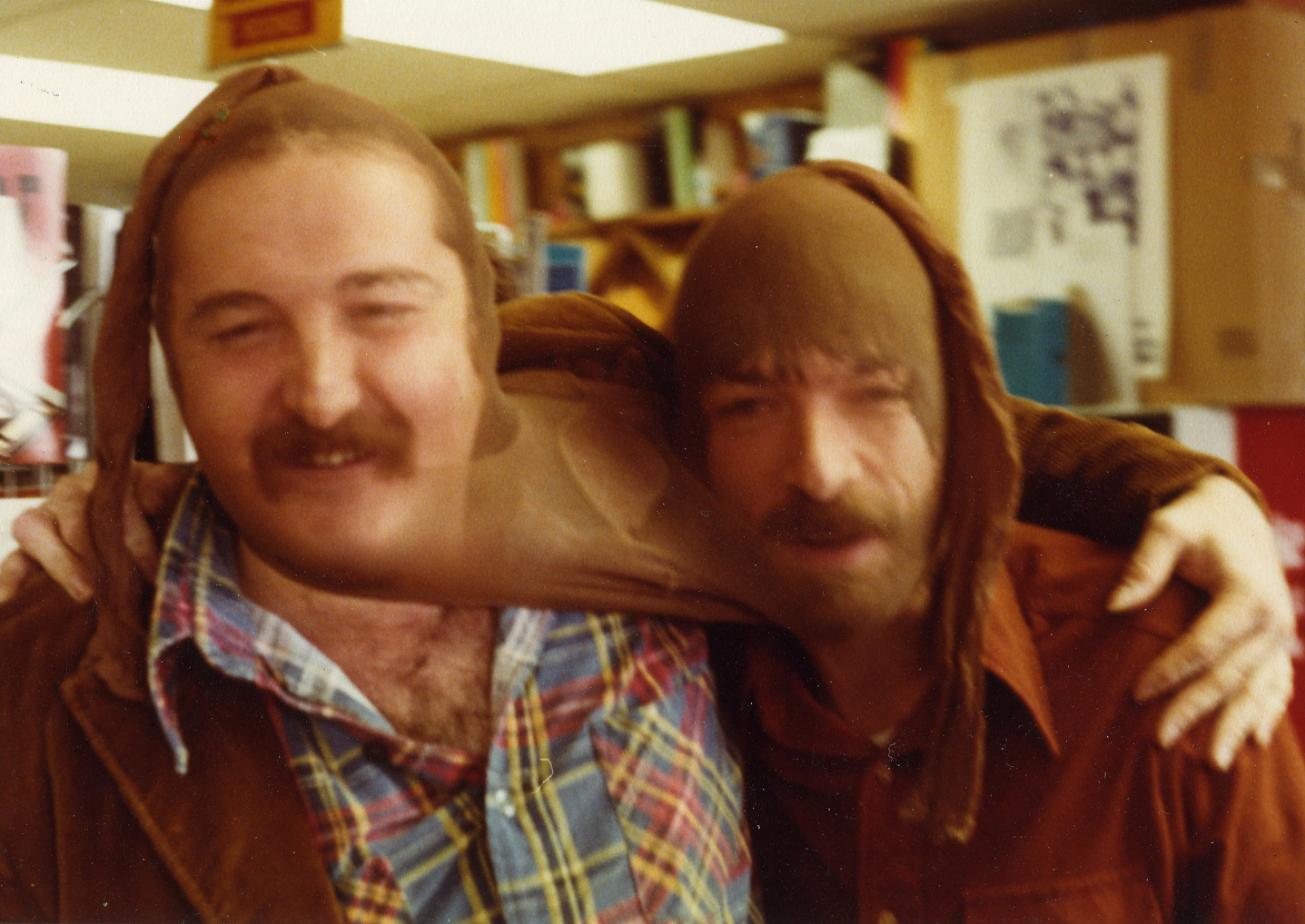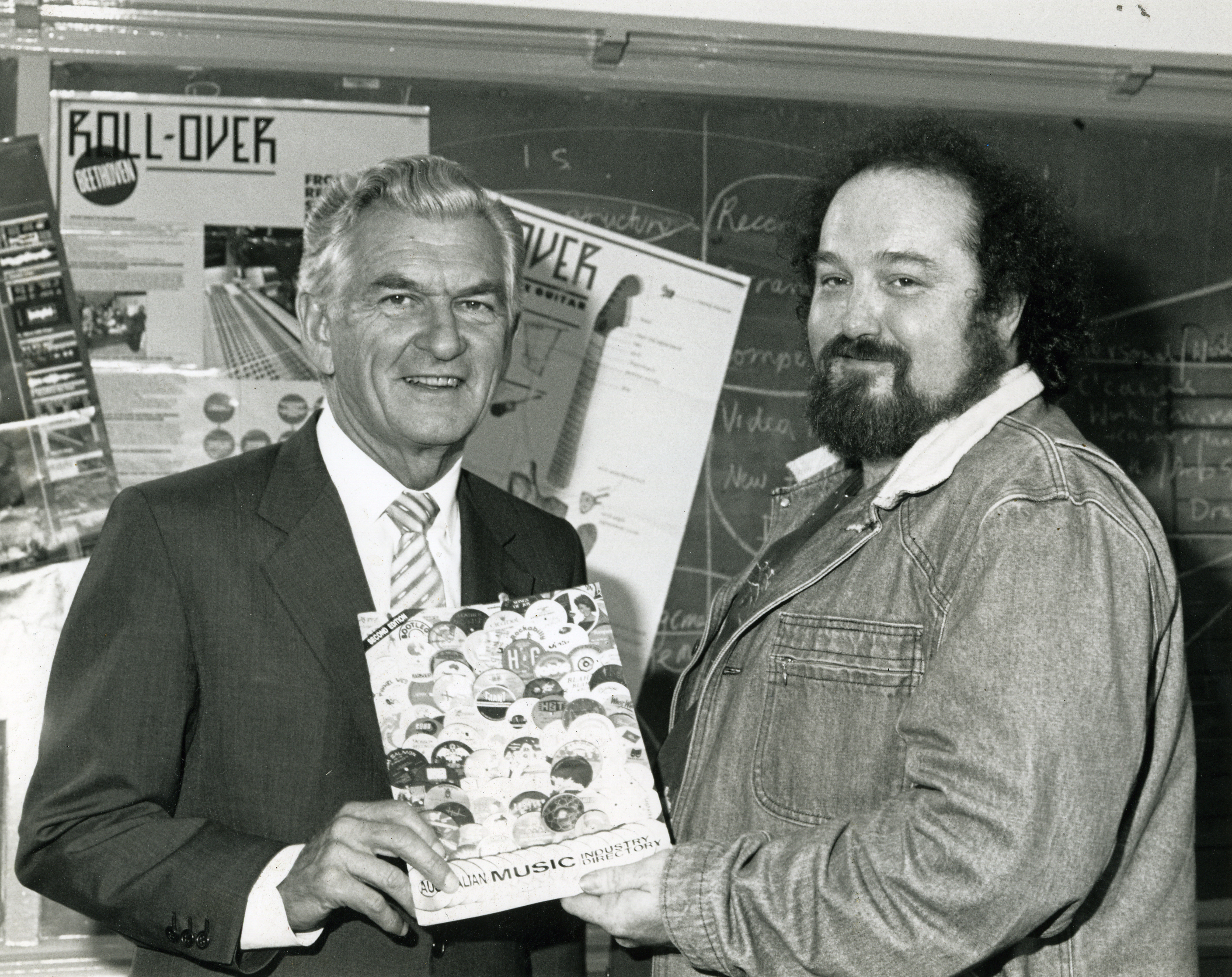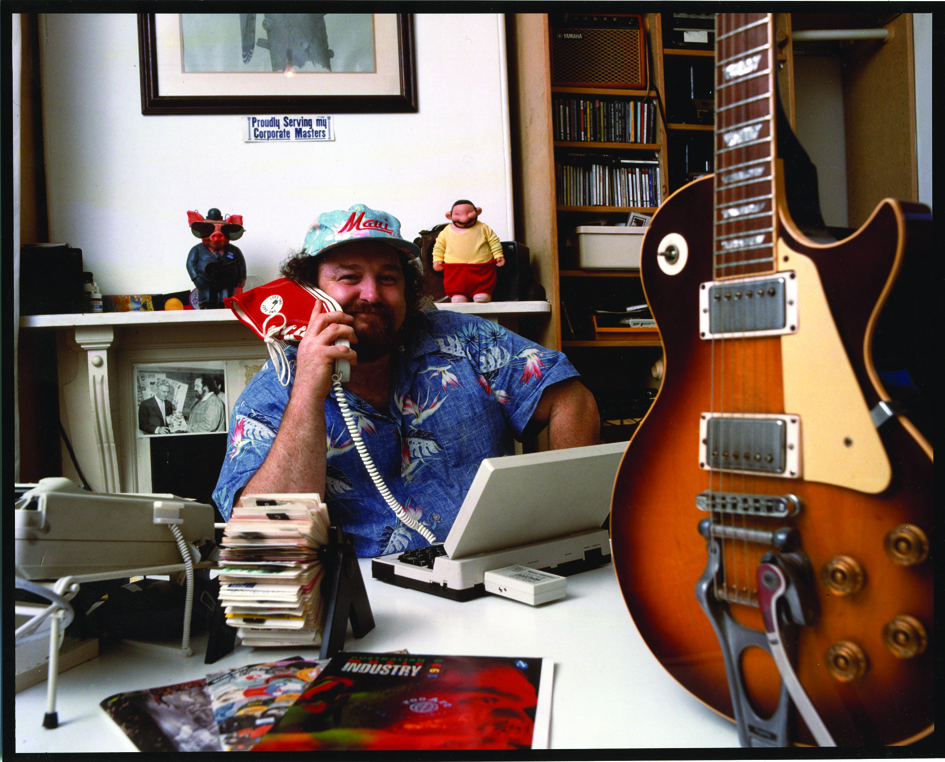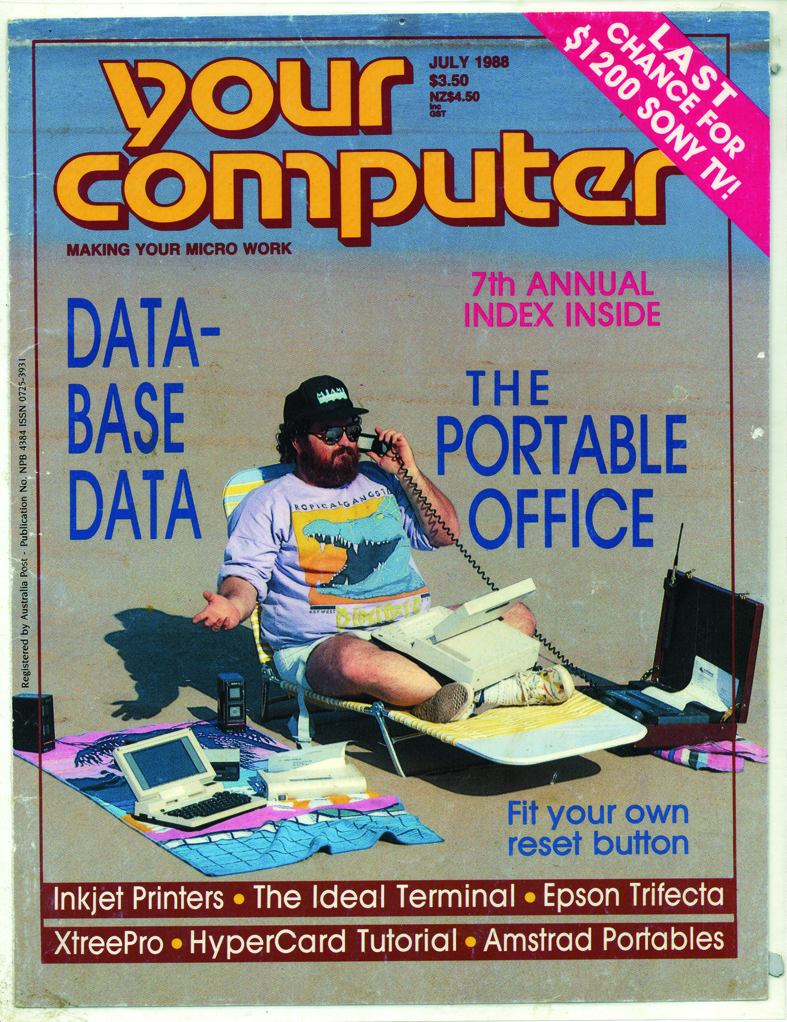 Doing his research, eliminating dictatorial, equatorial, arctic, communist and third world countries, he chose Australia and applied for residency. He was turned down by an older consular officer who oversaw his submission and judged his talents wouldn’t translate to Australia. Even though Phil was healthy, had plenty of money and property, he wasn’t necessarily a reasonable prospect to contribute to Australian culture. So naturally Phil decided the country that didn’t want him had to be his new home.
Doing his research, eliminating dictatorial, equatorial, arctic, communist and third world countries, he chose Australia and applied for residency. He was turned down by an older consular officer who oversaw his submission and judged his talents wouldn’t translate to Australia. Even though Phil was healthy, had plenty of money and property, he wasn’t necessarily a reasonable prospect to contribute to Australian culture. So naturally Phil decided the country that didn’t want him had to be his new home.
He went for his second interview in New York when he was working shows with Stephane Grappelli and on showing up to the Australian Consulate a day before a sold out show at Avery Fisher Hall, discovered that the cranky old consular officer was on long service leave. To his delight, the replacement was younger, hipper and when finding out that the Aussie was an unabashed Stephane fan without a ticket, offered to let him meet Stephane after the show so he could understand what Phil did and how his talents would fit. The next morning Phil had his visa.
Instead of emigrating by plane, Phil decided to take a cruise ship which meant a month on the ocean but free freight for his possessions which by this time was 5000 vinyl albums, four guitars, amps, stereo gear, clothes and not much else to haul over. So as a ‘boat person’ Phil went through the Caribbean, the Panama Canal, Mexico and the South Pacific with 15 stops before landing in front of the Sydney Opera House just before Christmas in 1981.
 He was lucky enough to find a small ground floor bedsit apartment just a block from the surf pounded tall cliffs of Vaucluse in the Jewish Eastern suburbs and took his first six months renting two campervans—one on the cool island of Tasmania in the summer and the other in the dry fall of Queensland. It was his way to absorb the cultures of Australia and despite the temptation to buy a church with a new flame in Tassie and loving the beaches and back hills of Cairns—where old acquaintance Bear Owlsley had taken up residence—he drove down the coast back to Sydney to start a new career in his new home country.
He was lucky enough to find a small ground floor bedsit apartment just a block from the surf pounded tall cliffs of Vaucluse in the Jewish Eastern suburbs and took his first six months renting two campervans—one on the cool island of Tasmania in the summer and the other in the dry fall of Queensland. It was his way to absorb the cultures of Australia and despite the temptation to buy a church with a new flame in Tassie and loving the beaches and back hills of Cairns—where old acquaintance Bear Owlsley had taken up residence—he drove down the coast back to Sydney to start a new career in his new home country.
Not wanting to tour again and with no real corporate experience, Phil took another set of faked references and job history and applied for a few ‘straight jobs’. Luckily, his observations on the major music retailer Palings 416 George Street store met with the approval of the progressive store manager and MD of the major chain and he was hired as the record store manager with 20 staff and two floors of product. He quickly revolutionised how the store was run, put in live music, a new stereo system and worked 80 hour weeks. Within two months the store was in profit for the first time in years and he was promoted to head of Sales and Marketing for the chain, taken off the floor, put behind a desk and lost the vibe. Within 30 days he was gone to travel Australia again with the Managing Director’s secretary, his new British wife Anna, vowing never to work for anyone again.
 He decided to penetrate media as a vocation and with no journalism degree, no media experience, contacts or anything other than a golf ball typewriter through a bank loan, became a freelance journalist. He committed to live solely off his earnings as a writer for four years before deciding to veer off on another path within media which was his equivalent of earning a college degree. He figured that the best way to earn a living was to write about things other people didn’t as well as for overseas publications that paid far better than local ones.
He decided to penetrate media as a vocation and with no journalism degree, no media experience, contacts or anything other than a golf ball typewriter through a bank loan, became a freelance journalist. He committed to live solely off his earnings as a writer for four years before deciding to veer off on another path within media which was his equivalent of earning a college degree. He figured that the best way to earn a living was to write about things other people didn’t as well as for overseas publications that paid far better than local ones.
He had to start somewhere so did articles on the business of music for RAM, a rock mag, and then started a series on music video for Australian Film Review as well as investigative pieces for the National Times, trades such as Billboard, Variety, Hollywood Reporter, and an array of film and audio professional magazines such as Mix, Millimetre and others in a technical vein. He was also published in Esquire and the Los Angeles Times and then carved a path through Australian newspapers such as The Australian and Sydney Morning Herald.
But while other journalists regurgitated press releases and breathlessly reported the same quotes from band press conferences, Phil decided that a point of difference was needed. Spurred by his two major editors—Greg Bright of AFR and Greg Taylor of RAM—who encouraged him to ‘create a niche, then corner it’, he embarked on investigative journalism into the criminality of the music industry.
He exposed a multi-million dollar embezzlement scandal at Warner Music and narrowly dodged a defamation suit by producing copies of cheques signed by the MD, Paul Turner, who was not a participant but tricked by his best mate the financial director. He also targeted major MDs of multinational record companies for immoral practices against artists and pricing collusion which resulted in the firing of two of them. He took on the Australian Record Industry Association over record pricing and this resulted in a major government inquiry that resulted in hefty penalties to some labels. He also exposed a sex scandal at a major label’s national convention.
In every case, he was threatened with lawsuits but never copped a writ. His knowledge of defamation law and ability to find sensitive documents and retain them led to him beating major law firms, but befriending them by acting as his own lawyer and using up outrageous amounts of billable hours against their clients for them. He even received death threats from a major label executive which he was able to document by a friend in the telephone company monitoring a pay phone outside of an industry bar that the often drunk exec used to harass Phil late at night.
 But it was the discovery of a small portable computer in 1984 called the Tandy Model 100 with a 64K memory and a 300 baud acoustic coupler modem that allowed for a new thing called email on a 3000 user global network of music pros that rocketed Tripp to international media fame. He became somewhat obsessive with the new technology and while those who knew him said that email would never replace Telex and such a small computer was a toy, he learned to file stories electronically and travelled the world with his hot-rodded Tandy and a bag of accessories, writing a combo of music business and travel pieces.
But it was the discovery of a small portable computer in 1984 called the Tandy Model 100 with a 64K memory and a 300 baud acoustic coupler modem that allowed for a new thing called email on a 3000 user global network of music pros that rocketed Tripp to international media fame. He became somewhat obsessive with the new technology and while those who knew him said that email would never replace Telex and such a small computer was a toy, he learned to file stories electronically and travelled the world with his hot-rodded Tandy and a bag of accessories, writing a combo of music business and travel pieces.
Through writing for various media conglomerates, he’d learned how to enter their side doors reserved for journalists and editors, depositing stories, but he also saw how press releases could be fed to journalists the same way rather than by mail or Telex. He upgraded his computer to a Mac and then started in a new direction in the “Art of Shoveling Smoke”—PR.
With his fourth year of freelancing coming to an end, it was time to get a ‘real job’ and Phil was enticed by companies he had written about on global media to switch sides and become a public relations rep for them. The timing was perfect as the country’s leading recording complex, Studios 301, took him on along with Fairlight Instruments which had just introduced the Computer Musical Instrument and Computer Video Instrument. Music video guru Steven Priest hired his services for Enterprise Color Video and his clip directors Russell Mulcahy and Steven Hopkins, both of whom went on to become film directors.
He saw the export market as the real goal for local acts and with the help of the Australian Trade Commission’s Export Development Grant Program, started to attract leading rock acts Midnight Oil, The Church, Divinyls, Eurogliders and others having him handle overseas media. His portable computer coupled with one of the country’s first mobile phones in a briefcase with a portable fax machine and printer made him a formidable publicist in the days when the leading flacks used Addressograph label slugs and mail. He created IMMEDIA! Public Relations with a staff of one, operating out of Chinatown.
His client list expanded with industry associations and organizations using his PR and marketing skills such as APRA the songwriters collection society, VicMusic the Victorian music body, Export Music Australia and even Austrade itself when he became a member of their Rock Music Committee. He also launched Disctronics, the country’s first CD manufacturer.
<Previous:Entering Organised Crime – The Music Industry < >Next: He Dies and is Reborn>


